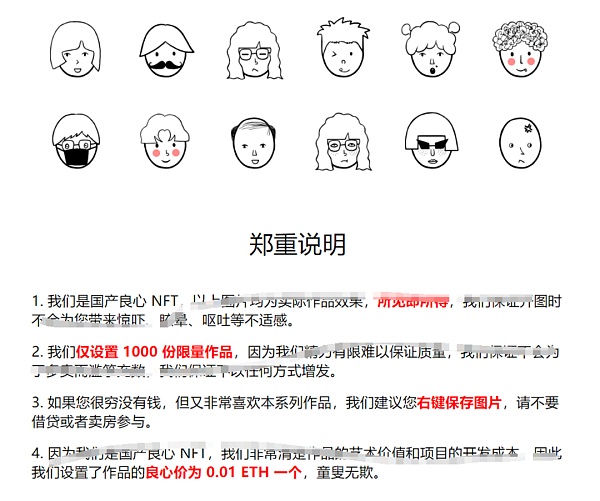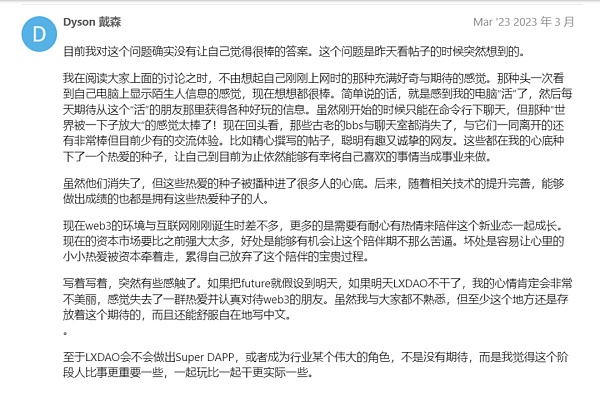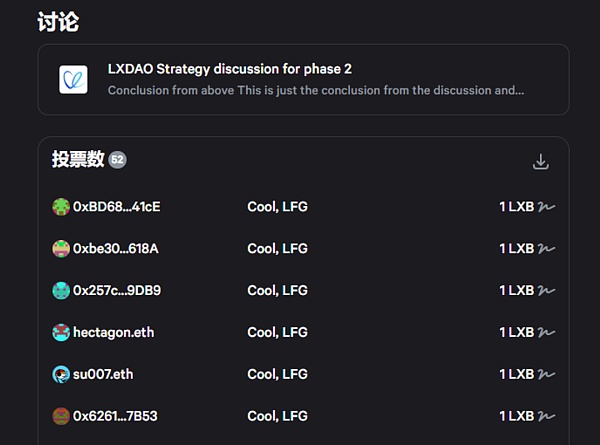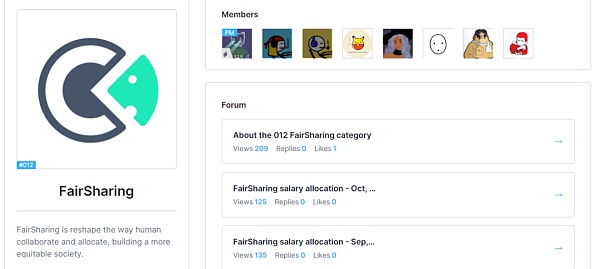Author: LXDAO
This series of articles summarizes the LXDAO governance experience. Starting from our actual experience, we look back on the LX Builders’ journey. Through the governance perspective of specific issues, we invite you to explore this journey together, and also contribute another LX public good to the future of thousands of DAOs.
Public Affairs Team: The team responsible for the daily governance of LXDAO, with main responsibilities including: designing and optimizing governance mechanisms, coordinating governance issues within DAOs, compensation and incentive mechanisms, etc. The work scope of the governance team also includes writing and optimizing the LXDAO white paper, designing Tokenomics, etc.
Three stages of finding the DAO narrative
Knowing "who am I" is an important and difficult thing. LXer has been asking for a clearer description. We have roughly experienced the three questions of "Where to go? How to go? Where to go?" The process is as follows:
1. Where to go: grasp the idea and find companions
As our proposal manual says, "Everything comes from just one idea":

A simple idea is enough to attract companions, even if it sounds difficult, such as "anonymously donating one BTC to the LXDAO treasury".

The original LX is the "domestic conscience". Adhering to the kindness and pragmatic attitude towards life in the bones of the Chinese people, LXer initiated the NFT project in a humorous tone to express the ridicule of various hypes, frauds and chaos, and the expectation for a sustainable Web3.

Domestic conscience, see: https://gclx.xyz/
A rebellious carnival allowed us to find fellow travelers. In our anniversary article, Bruce described the process in detail, and as he said:
"After this project went online, I realized one thing. Although Web3 is full of speculators and hype projects, there are still a group of people who are willing to invest time in some projects (even if they may not make money) and do something more meaningful and valuable.

At this stage, we are enthusiastic, humorous and down-to-earth, looking forward to the builders and builder communities who contribute to the beautiful and shared future of Web3. Perhaps this friend's comments can give us a glimpse of our mood at that time.

2. How to go: The world will gather around you
After knowing where to go, you need to find a path and a specific event to do.
This part is quick. After you figure out where to go, many people will come to help you. "Public goods" came into our vision with the recommendation of OG;
《LXDAO new mission and direction》:https://snapshot.org/#/lxdao.eth/proposal/0xd80591b764b781737aa5263f95c72f7af27977abd5ecc9e0d8bceb8e6bedf78c

After determining the goal, we began to study and listed "public goods" as a research topic, understanding it and using it to guide actions, such as creating FairSharing, our salary approval system, a mechanism to achieve fair distribution; all the mentioned libraries are open source, I hope it will be helpful to you.

For details about Public Goods Resreach:
https://www.notion.so/lxdao/Public-Goods-Resreach-1c52752e4e5d4636941f3c35cc821ef2
For details about FairSharing:
https://www.notion.so/lxdao/012-FairSharing-c3b6ae3ab8964210a8de18319707c37c

For details about the "Web3 Public Goods Ecological Research Report":
https://www.gccofficial.org/explore.html#report
At the same time, as a DAO with more than 50% developers, we are also building our own LX Protocol, a protocol that supports the construction of public goods from three aspects: personnel, funds, and influence. As the main product of LXDAO, we look forward to the co-construction of more partners.

For details about LX Protocol:
https://www.notion.so/LXProtocol-6282ad1d63df4a66a6875cc8311cc453?pvs=4
At this stage, new problems emerged, the construction began to be specific and fragmented, and we always had to be able to look forward to something.
3. Where to go: Looking forward to the future that excites you
With the deepening of the exploration of public goods, we gradually see such a scene:
Imagine that you and a group of like-minded people, through the realization of "collective asset management" public goods, pool part of your private property (ownership remains unchanged) to form a digital community; this community will have different physical settlements, under the snow-capped mountains, on the grasslands, and in the city. They are all connected to the world and produce through tools such as VR and the Internet; everything is open and transparent, and used according to collective wishes.

The community will have various functional departments: Ministry of Education, Ministry of Administration, and Ministry of Public Affairs. Through the command of collective will, it will provide appropriate, consistent and safe public services. Through the public goods of "social management", your rights will be guaranteed by code to be used in an unimpeded manner.

It sounds a bit like our parents' expectations of socialism: human collaboration, social equality, the end of alienation, etc. In fact, we will temporarily call this beautiful imagination "cybersocialism". What is happening is just as Michel Bauwens said in his "The Fourth Civilization":
"And I would suggest, this is the best way to interpret crypto: as the collective project of a producing class that is creating the very infrastructure they need to escape the power of both Big Capital and Big State."
"The best way to understand cryptocurrency: as the collective project of a producing class that is creating the very infrastructure they need to escape the power of both Big Capital and Big State."
Here is a video, listen to LXer What it said:
In order to further see this exciting future, we have formed a "Narrative Reading Club" which is open to participation and brings together students from various fields such as philosophy, sociology, and technology. Through the study of classical theories, we are building a new social model. This will take a lot of time. We have just found a few fragments, but the thought of its arrival is enough to make us move forward in anticipation.
For details about the "Narrative Reading Session":
https://www.notion.so/LXDAO-f39c49a0e59d498691c79db8e6dc238e?pvs=4
Summary
Looking back on this journey, for a bottom-up DAO, rather than saying that narrative is the result of "telling others who we are", it should be a process of exploring "who we are"; effective narrative is the result of deepening consensus, and narrative should be adjusted based on needs and consensus. A small idea of ten people is better than a grand narrative of a 100-page paper; at the same time, the deepening of consensus comes from practice, and the traces of practice are the best expression of narrative. Narratives that are divorced from practice will make organizations tired of exploring a too distant future and lose their grip on reality.
 Hui Xin
Hui Xin
 Hui Xin
Hui Xin Kikyo
Kikyo Joy
Joy Alex
Alex Davin
Davin Catherine
Catherine Hui Xin
Hui Xin Brian
Brian Clement
Clement Hui Xin
Hui Xin